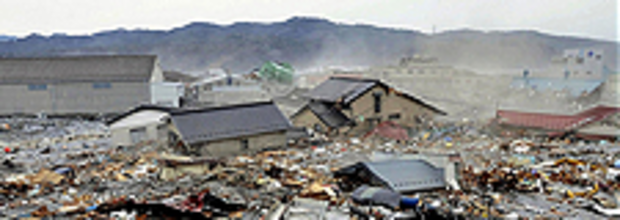Help Japan: Earthquake Relief Options
This article was updated on March 14, 2011.
As you watch the terrifying images of the tsunami rolling over Japanese industrial plants, farmland, and a nuclear power plant, the natural inclination is want to help with relief efforts. The Red Cross, Salvation Army and many other organizations have already sprung into action, and many organizations are already accepting donations via text message.
Certainly, the victims will need help. The 8.9 magnitude earthquake and resulting tsunami Friday has so far left thousands of people stranded and the death toll is estimated to exceed 10,000. Meanwhile, the government has declared an “atomic power emergency” after a nuclear power plant’s cooling system was knocked out by the tsunami.
While Japan, with its strict building codes, was better prepared for a disaster like this than Haiti was for the earthquake last year or than Indonesia, which was slammed by a tsunami in 2004, it still is a major blow for the country.
Here’s how to give:
- For small donations: Many organizations allow you to donate $10 simply by sending a text message. Text 'REDCROSS' to 90999 and, if you use Verizon or AT&T, you won’t be charged a fee for the message, so your full $10 will go the Red Cross. You can also text 'TSUNAMI' to 50555 to give to Convoy of Hope, a global relief organization based in Washington, D.C. The charge will show up on your next bill. But while this method is convenient, it’s not fast: Text donations normally take 90 days to process.
- For larger donations: If you’d like to contribute more than a few dollars, donate online. In addition to the Red Cross and Convoy of Hope, the Salvation Army, which has had a presence in Japan since 1895, is mobilizing relief efforts in response to the earthquake.
- Give cash, not clothes. As Kathy Kristof pointed out after last year’s quake in Haiti, relief organizations need money, not sweatshirts or boots.
- Beware of scammers, fraudulent sites. Don’t give to strangers who contact you by e-mail or on the phone. If you’ve never heard of a charity, check to see if it is listed on Charity Navigator, which evaluates the financial health and efficiency of more than 5,500 organizations. In the aftermath of Hurricane Katrina, the FBI reported that 4,000 scamming charity sites were created to take advantage of generous donors. To ensure you are not scammed, the FBI suggests:
Avoid cash donations if possible. Pay by debit or credit card, or write a check directly to the charity. Do not make checks payable to individuals.
If you have received a suspicious e-mail, or have been contacted by someone claiming to be a victim of a disaster and you are skeptical, the FBI suggests that you contact the Internet Crime Complaint Center at http://www.ic3.gov.
We know Americans can be generous. Just four months after last year’s devastating earthquake in Haiti, the American Red Cross raised $430 million from donors who wanted to do their part. In the first four weeks the Red Cross raised $32 million in text donations alone.
More on MoneyWatch:

